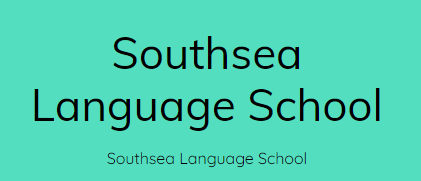Our language classes are divided into Stages. Stage one is designed for real beginners whilst stage six and seven are for advanced learners. Check out the entry requirements to determine which stage is most appropriate for you.

Our language classes are divided into Stages. Stage one is designed for real beginners whilst stage six and seven are for advanced learners. Check out the entry requirements to determine which stage is most appropriate for you. Some languages are available across levels in terms of the Common European Framework of Reference for Languages (CEFR). This allows students to work towards UNILANG recognition, which is highly recognised by employers. For more information, see our 'Awards' section.
French stage 1
This course is suitable for real beginner learners of French with virtually no prior knowledge of the language.During the course you’ll learn how to talk about basic personal details, and your work or studies. You’ll learn how to talk about daily routines and how to arrange meetings.
At the end of the course, you’ll have some elementary appreciation of French grammar and structures and you’ll be able to give basic information about yourself, ask for directions and arrange travel.You’ll be able to communicate at a basic level when shopping and when you are in restaurants and in hotels.
French stage 2
This course is suitable for beginner learners of French with some knowledge of the language, equivalent to stage 1 (for example GCSE grade B or C).
During the course you’ll learn about how to give information about self and others, asking questions and interviewing, giving and understanding information about holidays, vacation jobs, recounting a series of events, expressing opinions, understanding/giving descriptions of people and places
At the end of the course, you’ll have deepened your appreciation of French grammar and structures at an elementary level and you will be able to make comparisons, and talk about recent and past events.
French stage 3
French stage 3 is the right stage for you if you’ve successfully completed French stage 2 or equivalent, e.g. GCSE grade A.
During the course you’ll study topics relating for example to the media, culture, fitness and tourism.
At the end of the course, you’ll be able to express/understand opinions for example about where you live, which media you use, how you keep fit or describe holiday experiences.
French stage 4
French stage 4 is the right stage for you if you’ve successfully completed French stage 3 or equivalent (e.g. A level grade D or E).
During the course you’ll study topics relating, for example, to environmental issues, immigration and equal opportunities, poverty and unemployment, crime and new technology.
At the end of the course, you’ll be able to talk for example about events in the past and future as well as your intentions and wishes using the conditional tense.
French stage 5
French stage 5 is the right stage for you if you’ve successfully completed French stage 4 or equivalent (e.g. A level grade A, B, or C).
We currently use authentic materials (news reports, documentaries, podcasts and satirical cartoons) on current affairs. Topic areas typically include the news, politics and social issues.
At the end of the course, you’ll be able, for example, to summarise written and spoken texts, as well as discuss ideas and give your opinion.
French stage 6
French stage 6 is the right stage for you if you’ve successfully completed French stage 5 or equivalent (e.g. an A level French plus at least one further year of study or equivalent).
We currently use authentic materials (news reports, editorials, podcasts and films) on current affairs and French society. Typical current issues may be cultural differences, illegal immigration, globalisation or gender equality.
At the end of the course, you’ll be able, for example, to summarise extended written and spoken texts, distinguish and use various language registers, as well as discuss and debate complex ideas.
French stage 7
French stage 7 is the right stage for you if you have successfully completed French stage 6 or equivalent (e.g. an A level German plus at least one further year of study or in-country experience of the language or equivalent).
Applicants for stage 7 must have prior approval from the Course Tutor or Course Administrator.
Learning a foreign language is a wonderful opportunity to not only learn the language itself, but also to reveal different perspectives on life, enabling you to explore new cultures through a different lens.
Our courses are more than just engaging classroom sessions supported by excellent online resources.You’ll also have the option to take assessments and be awarded a Nottingham Trent University (NTU) Language Programme Certificate of Achievement.
If you continue to study with us, you may become eligible for a Certificate of Language Learning or Diploma of Language Learning
From our vibrant City Campus in the bustling heart of Nottingham to the idyllic countryside estate of Brackenhurst, we have a number of University sites across Nottingham and the surrounding areas.We are continually investing in our grounds, buildings and facilities to create a stimulating and inclusive learning environment for all to experience and enjoy.
Academic Schools
Our eight Academic Schools — plus the Confetti campuses in Nottingham and London, and NTU’s dedicated Mansfield Hub — provide a student experience like no other. Each School has its own sense of community and character, built on enthusiasm, expertise, opportunities, and award-winning support.
Course search
Enter the title or keywords of the course you’re interested in. You can also find out more about our open days and events through our course pages. You can use the filters to further narrow your search by subject area and study options. This will ensure the information you’re looking for is displayed, and guide you to the correct open day.

French Course is Offered by Southsea Language School.

Our dedicated french tutor can help you to master a new language, whatever your starting level. Whether you want to take an test, prepare for life abroad or simply find your way around on holiday we can tailor our courses to help you achieve your aims.

We provide online French tuition in London and online French tutors worldwide. Our French tutors are hand-picked from the best universities and rigorously interviewed. They work with students at all levels – from beginner to advanced – from all over the world.

In addition to being a beautifully-sounding language, French can be a great investment if you plan to live abroad, want to make new friends, discover a fascinating culture, or travel to French-speaking countries with ease.

Globally regarded as the language of love, French may be the most romantic language and France, the most romantic country in the world. But this language’s influence isn’t limited to just one country: the language spreads throughout Europe, the Caribbean, Africa, and Canada.
© 2025 coursetakers.com All Rights Reserved. Terms and Conditions of use | Privacy Policy